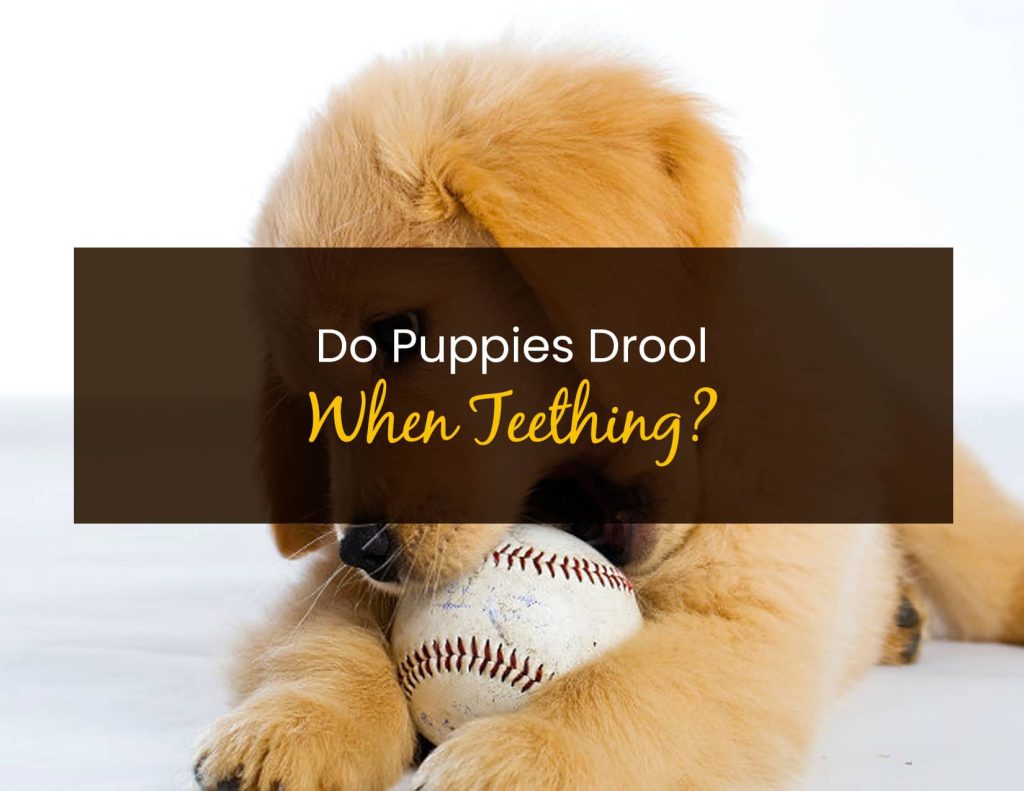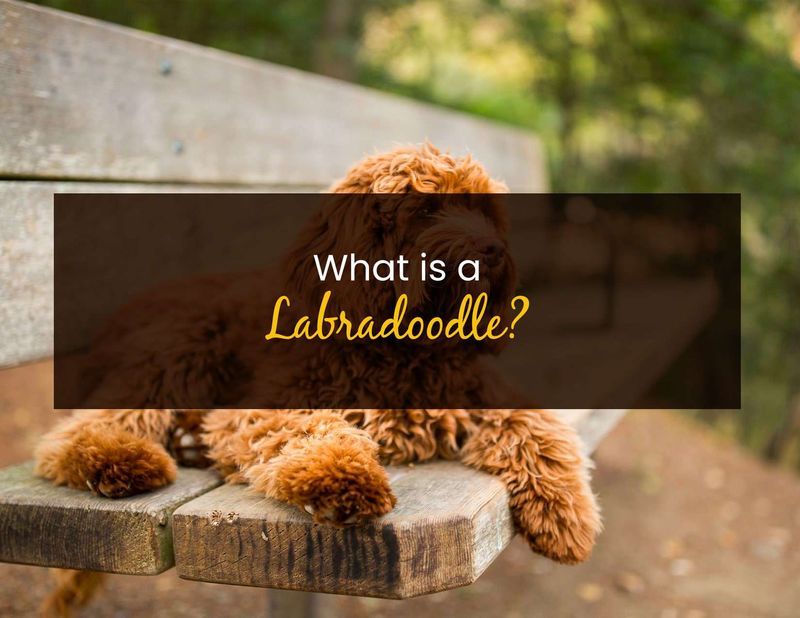A puppy’s teething period is a difficult time for any dog owner. Puppy teeth appear at 3 weeks of age, and adult teeth appear at 3 1/2 months of age or beyond. When your puppy is 7 months old, he will have all of his adult teeth, a total of 42 in number. However, your dog will go through a lot of transformations before this happens. So that does make us wonder, is drooling one of the changes a puppy needs to go through during teething? Do Puppies Drool When Teething? Is It Something Else? If you’ve probably had these questions , then certainly you have a puppy currently teething and drooling at the same time. To answer your questions, YES. Among other symptoms your puppy will go through when teething, drooling is probably the most common for all breeds of puppies. Although, it should be noted that some puppies droom more than others.Excessive drooling, on the other hand, can be a sign of something else. The pain in their mouths and gums may still be due to their adult teeth erupting, but it might also be an indication of tartar buildup, dental rot, oral tumors, or other issues.The bottom line: A little bit of drooling is natural but excessive drooling is usually not normal. It’s best to consult your vet when your puppy starts drooling for advice on what is normal and what not to ease your mind with your puppy’s drooling habits.Now that your main concern is answered, let’s dive into a more intense discussion regarding why puppies drool and other symptoms when puppies are teething. 🙂

©CILISOS
What is “typical” drooling?
There is a wide range of “normal” when it comes to drooling in dogs. Dogs with large upper lips are known to be droolers. The amount of drool they make is too much for their head/lip conformations to retain. These dogs have additional skin around their lips and muzzles, which accumulate saliva in the folds. Bloodhounds, Newfoundlands, mastiffs, and Saint Bernards are examples of these breeds.However, even dogs that don’t slobber all the time can also drool from time to time even when they are not teething. They can sometimes drool when anticipating something delicious. Disagreeable taste, like that of some medications, can cause the same result.There is no exact science to know what is normal drooling for puppies especially since it differs from one breed to another. However, when they drool more than what they usually drool, it’s probably something to be concerned about. Again, always consult with your vet. There is no better way to be sure that your puppy is healthy.
HEALTH CONCERNS WHEN YOUR PUPPY IS DROOLING
Drooling excessively in dogs can be a sign of a number of health issues.
- ORAL DISEASES
Inflammation of the gums, tartar build-up, and/or oral tumors in the mouth and/or throat are just some of the causes of dogs to drool more than they normally would. If oral and dental problems progress, they can bring serious illness throughout the body, and in rare circumstances, even death.
- A FOREIGN BODY IN THE MOUTH OR THROAT
- Dogs enjoy putting objects in their mouths and chewing on them. So having foreign objects like toys and bones stuck inside their mouth is not uncommon. They’ll start drooling profusely if an object gets trapped in their throat.
IMPORTANT NOTE: Bring your puppy to the emergency room as soon as you notice a foreigh object stuck inside his mouth. This can be lethal for puppies.
- STOMACHACHE
Heavy drooling in dogs can be caused by an upset stomach, such as nausea or a stomachache. Drooling caused by nausea is, of course, temporary and can be treated with anti-nausea medicine given by your veterinarian.

©This Dogs Life
- STRESS and ANXIETY
Stress can be a reason for a dog to drool more than usual. It can occur during visits to the vet, a car ride or even moving to a new home. This is often accompanied by other symptoms like restlessness or panting.
- HEAT STROKE
Heat stroke is a serious condition caused by your dog being overheated and exposed to the sun (much like in humans). A dog suffering from heat stroke will pant heavily in an attempt to cool down, and the panting will be accompanied by copious drooling.
- UPPER RESPIRATORY INFECTIONS
Drooling can be a symptom of an infection of the nose, throat, or sinuses. Dogs that live in homes or shelters with other pets have a higher risk.
- BLOAT
Bloat is a potentially fatal illness in which the stomach fills up with gas or liquid, placing pressure on the surrounding organs. Drooling, along with restlessness and stomach swelling, is one of the warning indicators of this disorder. If you feel your dog is suffering from bloat, seek medical help right away.

©Long Animal Hospital
SYMPTOMS OF TEETHING ASIDE FROM DROOLING
- NONSTOP CHEWING
Dogs have a natural instinct to chew—it’s just part of being a dog! However, if you detect a sharp increase in your puppy’s enthusiasm in chewing, this may indicate that she is about to start teething. As their adult teeth erupt, puppies will go to great lengths to be able to chew on ANYTHING!During this stage. it is critical to provide your puppy with A LOT of chewing toys. Encourage your dog to only chew on objects design for dog’s chewing and not on your personal belongings.
- SLOW EATING
When a dog is teething, his mouth hurts, and when he eats, it hurts considerably more. As a result, even if your puppy has been a voracious eater he may start eating slower as a sign that she is teething. Some puppies may even stop eating completely if they are in a lot of pain while teething. IMPORTANT NOTE: Consult your veterinarian if your puppy is not eating. While this is normal, your vet can help you with alternative dog food and supplement that can help and aid with the gums and tooth pain your puppy is experiencing while teething
- BLEEDING OR SWOLLEN GUMS
While teething, it’s natural for your dog’s gums to be red and swollen. This is all part of its body’s natural process of losing baby teeth and developing adult teeth. Additionally, you may observe blood all over its mouth for when the baby teeth fall off or more often if your puppy has sensitive gums. There is no need to panic if you see blood all over your pup’s toy especially if they just played with it. However professional help is needed for excessive bleeding like when their toys are soaking with blood.
IMPORTANT NOTE: The redness and swelling may last for several months, so don’t be concerned if you observe it after that period has past.
- WHINING
Puppies whine all the time, especially when they’re young. If your puppy has grown out of her whining period but then returns to it, it could be a sign that he is teething. Puppies who are teething will also whine while chewing on toys and eating.
- VISIBLE LOST TEETH
Teething in puppies is often accompanied by a noticeable loss of teeth.Just like with humans, dogs’ lost teeth may be easy to find.









